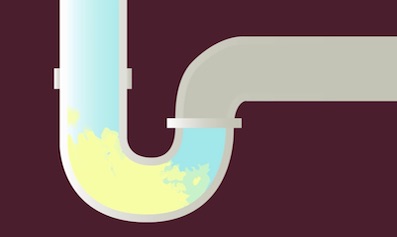 Cleanzine: your weekly cleaning and hygiene industry newsletter 26th June 2025 Issue no. 1168
Cleanzine: your weekly cleaning and hygiene industry newsletter 26th June 2025 Issue no. 1168
Your industry news - first
The original and best - for over 20 years!
We strongly recommend viewing Cleanzine full size in your web browser. Click our masthead above to visit our website version.
Waterless urinals must become more widespread for infection control and the planet
 A sustainable hygiene solutions company has highlighted how waterless urinals could play a vital role in future infection control; as well as carrying environmental and financial benefits.
A sustainable hygiene solutions company has highlighted how waterless urinals could play a vital role in future infection control; as well as carrying environmental and financial benefits.
Following on from previous research conducted in the Summer which revealed that flushing urinals can release clouds of virus-containing aerosols that people in the surrounding area could inhale, and that traces of SARS-CoV-2 the virus particle - were found in a sample of a Covid-19 patient's urine, Smarti Environmental specialises in sustainable and hygienic water-saving technology and conducted its own water-free urinal comparative microbial study to look further into the role of its product offering in virus safety.
The research demonstrated that water-free urinals provided a lower overall incidence of bacteria than for flushing urinals and offered a 98% reduction in urinal aerosol bacterial transmission. No water means that the risk of the waterborne pathogens, E. coli and Legionella, is removed and no flushing means no possibility of airborne droplets of bacteria or virus particles being spread around the washroom.
Further to the safety aspect of waterless urinals, the non-flushing technology also has proven environmental and financial benefits. With as many as 3.5 million urinals flushed every day in the UK alone (in a pre-lockdown climate), more than 217 billion litres of water are wasted annually; equating to more than the UK's largest reservoir.
Every waterless urinal saves circa 100,000 litres of water per year (based on one 9-litre cistern supplying three urinals flushing four times per/hour 365 days per year) and subsequently reduces energy usage and carbon footprint.
This also has a direct impact on cost savings, with it estimated by Smarti Environmental that this reduces costs by at least 50% of the current costs associated with each urinal (after conversion, service and consumables).
This means that waterless urinals provide an effective infection control measure, with no costs associated with its implementation and will help businesses save money at a time where limiting unnecessary expenses is pivotal in their survival.
Smarti's conversion kits fit up to 98% of current urinals and the technology utilises a key-valve crystal enzyme ring that traps and consumes bacteria and odours. An enzyme Steri Kleen pipe-pod is fitted beneath the urinal which serves to lubricate the pipes, break down the uric acid/urine and pass it through to the sewage pipe. The valves and pods require replacement approximately once per quarter (the colour changing enzyme ring indicates the need) and all that's required in terms of maintenance is a spray of the bowl and pipework once daily as part of the cleaning routine, with a special enzyme odour and infection control spray.
"There's nothing quite like a global pandemic to put the spotlight on hygiene measures and things that can impact virus control," says Martin Richards, Director of Smarti Environmental.
"Our own research, along with findings from studies elsewhere in the world, are evidence that waterless urinals could not only save water and money but, in the most extreme form, also lives."
"We are already officially working with Innovate UK, the UK's innovation agency to fight Covid-19 and any further outbreaks, on our current product range and development of future products, and our technology has already been implemented by the likes of the NHS, National Trust and McDonalds.
"Water and washing are so often associated with cleanliness; but just as humans need water to survive, so do bacteria. By eliminating water from our urinals, we create an environment that minimises bacterial growth and potential virus spread. For the sake of the environment and improved infection control, waterless urinals need to be far more commonplace."
11th February 2021







